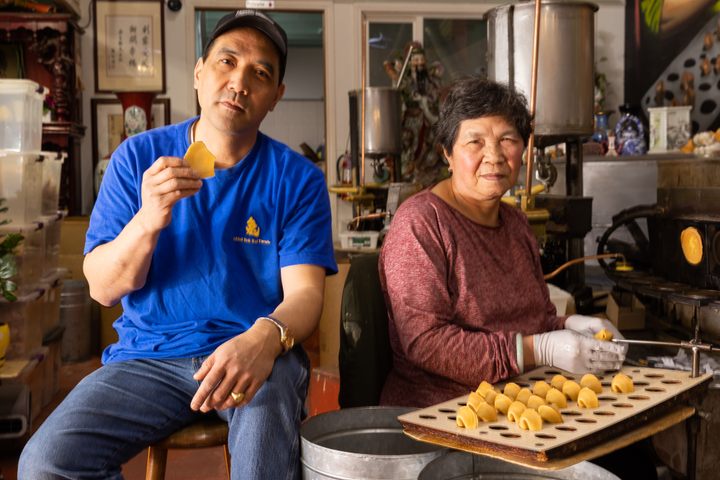

A Day in the Life of a Fortune Cookie Maker at the Golden Gate Fortune Cookie Factory
In the heart of San Francisco’s Chinatown, a favorite dessert is still made the old-school way.
A satisfying snap; the taste of vanilla and sesame; a tiny prophecy read aloud. The ritual of eating a fortune cookie is familiar to anyone who has eaten Chinese food in the United States. What’s less familiar is the fact that these cookies are not Chinese at all; in fact, they’re a California invention.
As best historians can tell, modern fortune cookies were invented in San Francisco in the early 1900s, a variation on the Japanese tsujiura senbei, or “fortune cracker.” The cookies are part of San Francisco’s history, and representing that history is the Golden Gate Fortune Cookie Factory, owned and run by Kevin Chan. Founded in 1962 by Chan’s mother and uncle, named a San Francisco Legendary Business in 2016, it’s one of the oldest fortune cookie factories that still uses its original secret recipe and assembles the cookies by hand.
According to Chan, when you spend your life making fortune cookies, “Every day is the same.” Chan started helping out with the family business when he was 9 years old. Now, every day starts early, with 6:30 a.m. trips to pick up ingredients like flour and sugar. What does change is which ingredient he buys on each day. “I have a small van,” he explains – he can’t pick up a bulk order of more than one thing at once. Chan then returns to the factory to begin a long day of baking.
To find the Golden Gate Fortune Cookie Factory, you have to duck down Ross Alley in San Francisco’s magnificent Chinatown. The oldest alley in the city, Ross Alley used to be infamous for gambling back in the 1880s; nowadays, it’s painted with colorful murals celebrating the Chinese community. By the time Chan gets back to the factory, his mother, Nancy Tom Chan, is likely already there. “My mom starts at 7,” Chan says, “mixing the batter, heating up the machine.” Those unusual machines are a big part of what makes the fortune cookies so historic – and so delicious.

“The machines are very, very unique and very, very special,” Chan explains. They’re antique – the oldest dates back to the 1950s – and are the same ones Chan’s family has used since the Golden Gate Fortune Cookie Factory was founded over 60 years ago. The machines were tailor-made to bake fortune cookies. Batter is dripped onto circular griddles, and when the cookies are baked, a baker immediately folds the cookie – while it’s hot! – over a metal rod. They insert a fortune, and close the cookie. Watching the process is captivating: wow, so THAT’S how a fortune cookie is made!
Using these machines required developing a recipe that would suit them exactly. “My mom developed that recipe just for the machine,” Chan says. “When I was a kid, I remember my uncle and my mom – they were pulling their hair out every day because of their experiments.” They had to figure out not only what ingredients made the cookies taste good, but “how you’re going to make the machine like your ingredients. That’s the key.” If the recipe is changed even slightly, the cookies won’t stick to the griddles, or they might be too sticky. And then, Chan says, “You’re going to have a nightmare all day long.”
The exact recipe Chan’s mother developed is a secret, but when asked what makes them so delicious, Chan replies that it includes a lot of eggs, sesame seeds, and butter. “All that stuff is real tasty.” What’s certain is that it’s a fortune cookie that exists nowhere in the world, except in this store in a San Francisco alley.
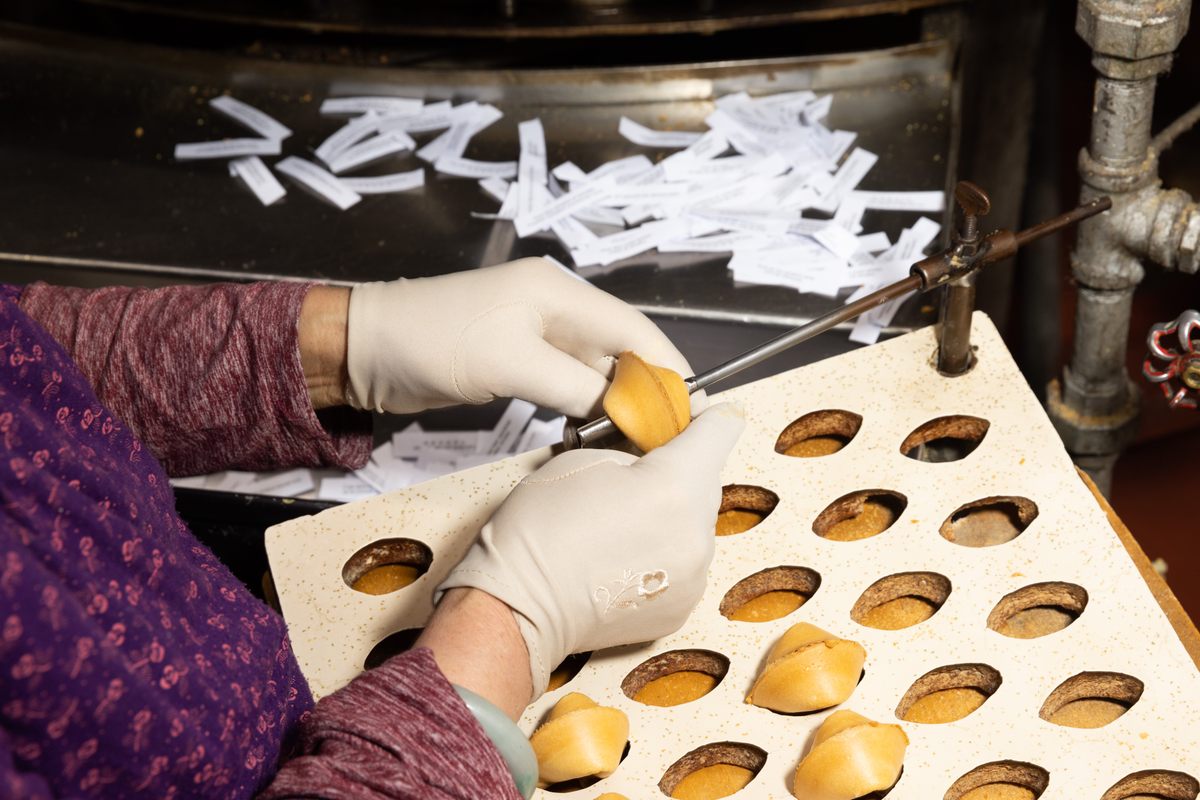
Now that the recipe has been perfectly calibrated for the antique machines, the Golden Gate Fortune Cookie Factory is able to bake a huge amount of cookies every day, though Chan says he doesn’t keep an exact count. But the small family business will never be able to keep up with industrial fortune cookie producers – and that’s by design. Chan makes clear that his cookies are not the ones you’d taste at Panda Express, made by some company that “could do four million a day.” Instead, when you taste a Golden Gate Fortune Cookie Factory cookie, you’re tasting the fresh ingredients, the history of the machines, and the care of bakers’ hand assembling every single cookie.
In recent years, the company has expanded beyond the classic fortune cookie and now offers a variety of inventive sizes, flavors, and toppings. It sells chocolate fortune cookies, green tea cookies, cookies that are glazed, cookies covered in sprinkles. “If chocolate can cover a strawberry,” Chan remembers thinking, “Why doesn’t chocolate cover my cookies?” Waffle cookies in ice cream inspired Chan to begin selling flat, never folded fortune cookies, which are perfect to adorn an ice cream sundae. To this day, he works to think of new twists on fortune cookies, and stays late to dip cookies in chocolate. “I can’t do it in the daytime,” he says, because with the heat of the baking, “it’s so hot, and they would melt.”

The originality also extends to what’s inside the cookies. The Golden Gate Fortune Cookie Factory offers custom fortunes for parties, anniversaries, corporate events, and more. “You name it, I can put in the fortune for you,” Chan says. He loves when people use his fortune cookies to propose, writing “Will you marry me?” or putting a ring inside. “Matter of fact, [the last proposal cookie I made] was two weeks ago,” though Chan doesn’t yet know whether it worked. (So far, he says, his efficacy rate is about 80%. “So, they’re lucky.”)
With early mornings shopping and late nights dipping cookies in chocolate, running a fortune cookie company means Chan is constantly working. But it’s all worth it to see people enjoy his cookies. “It’s all my work coming back,” he says. “It’s all my pride.”
That’s part of why it’s important to Chan that people actually come into the factory, where they can try free samples and buy cookies, can see the antique machines first hand and watch as the cookies are hand-assembled. Part of the reason he doesn’t ship his cookies is because they break in the mail, but that’s not the only reason, Chan explains. “I want people to come into the community, come into the cookie shop, experience it, and see how they’re made. I always consider Golden Gate Fortune Cookie as a mini-museum and an institution, not just a shop. I want people to come in and experience an old-timer making cookies.” Chan worries that with the frenetic pace of today’s technology, young people are losing access to “the old-school way” and losing a connection with older lifestyles. He hopes that by coming into the factory, they can appreciate the history and the unique culture of San Francisco’s Chinatown, the largest Chinatown outside Asia and the oldest in North America.
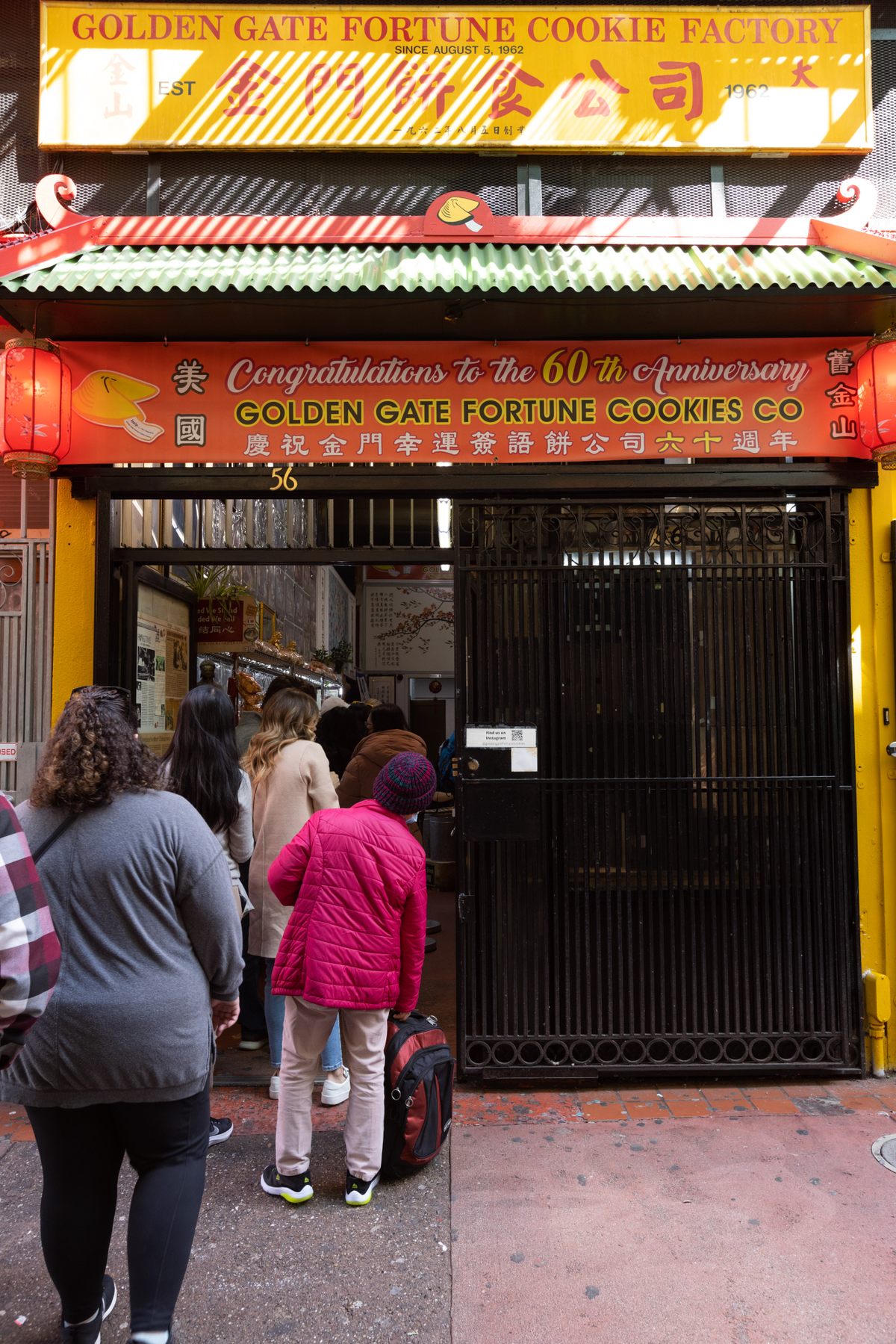
Kevin Chan has spent his life making the most iconic dessert in Westernized Chinese food culture, and he wants to express one thing to people: “A Golden Gate Fortune Cookie isn’t just a cookie. It’s all of our culture.” Chan sees a fortune cookie as a meditation, a moment to reflect and feel the love of the person who made the cookie. “Especially when you’re unhappy,” you can snap the cookie open and find a note of inspiration. “And,” he concludes, “it tastes good, too.”
This post was sponsored by Visit California. Learn More.


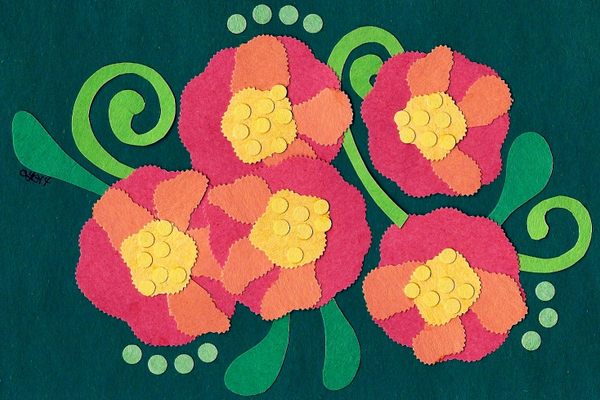

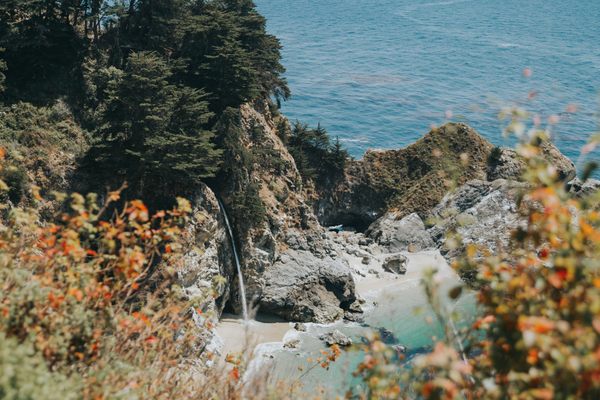














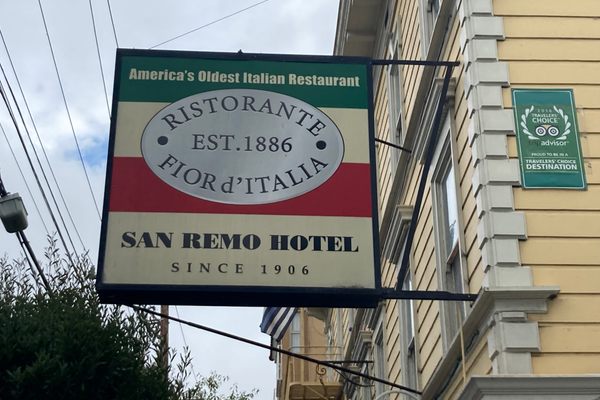



Follow us on Twitter to get the latest on the world's hidden wonders.
Like us on Facebook to get the latest on the world's hidden wonders.
Follow us on Twitter Like us on Facebook